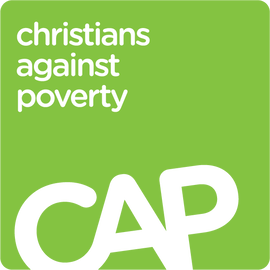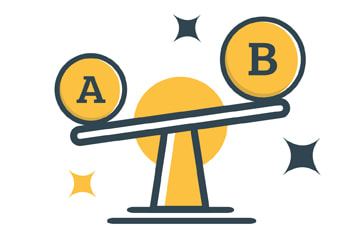CAP NZ Review - The Free Debt Assistance Service Available New Zealand-Wide
Our review explains CAP (Christians Against Poverty) and how they support New Zealanders to get on top of problem debt and become financially resilient.
Updated 8 November 2023
Summary:
To help explain CAP further, our review covers the following:
Related Guides:
Summary:
- CAP is Christians Against Poverty. CAP's vision is to end money chaos for people in New Zealand.
- CAP partners with around 200 churches across the country, bringing local practical help to people in financial hardship and in-depth, long-term support through CAP's Head Office in Auckland.
- CAP has been helping New Zealanders in need since 2007 and offers two free services:
- CAP Debt Help — free and confidential help for people facing money problems caused by unmanageable debt. So far, per discussions with CAP's team, more than 2,300 New Zealanders and their whānau have gone from being in financial hardship to living debt free.
- CAP Money - a free financial literacy course. Over 17,000 New Zealanders have attended a CAP Money course and have learnt vital financial literacy skills, empowering them to spend, save and budget well.
To help explain CAP further, our review covers the following:
- What is CAP and How Does it Work?
- Pros, Cons and Must-Know Facts About CAP's Approach
- Frequently Asked Questions
- Client Feedback about CAP
Related Guides:
MoneyHub Founder Christopher Walsh shares his comments about CAP NZ:
|
"Christians Against Poverty NZ (CAP NZ) shines as a lifeline for New Zealanders grappling with the burden of debt. The organisation offers a comprehensive debt solution service, ensuring that their clients can access all necessary resources in one place. This integrated method simplifies the process, alleviating the stress of coordinating with multiple service providers.
I've been familiar with CAP NZ's work for several years, and they are often praised within circles of financial experts and advocates throughout New Zealand. Their reputation for providing practical, empathetic, and effective debt support is widely recognised. With an impressive track record, CAP NZ has enabled countless individuals to reclaim their financial independence. They deliver personalised advice and solutions, which help individuals manage their debt and enhance their overall quality of life, with a 90% success rate of staying debt-free long-term. While the thought of discussing personal financial details can be daunting, CAP NZ ensures that all client information is treated with utmost confidentiality and security. The organisation's wealth of successful case studies and positive client feedback are a testament to their successful approach, reinforcing their standing as a trusted resource for those in financial distress. If you find yourself in the grip of financial troubles and seek a supportive, non-judgmental organisation to guide you through, CAP NZ could be your answer. Their unwavering commitment to empowering people to achieve financial resilience is reflected in their client success stories and comprehensive range of services." |
Christopher Walsh
MoneyHub Founder |
How does CAP NZ's Debt Help work? How can I access this service?
- When a person in unmanageable debt makes their first call to Christians Against Poverty, a team of specialists is ready to help. The process is as follows:
- Karakia/prayer is offered on this first phone call, and this is always optional.
- Next, a CAP Debt Coach and support worker from the Debt Help Centre at the local church arranges to visit the client's home or at another location where they're most comfortable to begin their journey. CAP Debt Coaches can help take care of any immediate practical needs for the client as they get to know them and their situation.
- The Debt Coach helps the client to gather their debts, loan information and bills and sends them to CAP Head Office. Here, the team advocates on behalf of around 500 CAP client households every day.
- CAP negotiates with creditors/money lenders to get interest and payments lowered, helping clients to go debt free faster, and builds effective budgets which prioritise food and essentials. Sometimes CAP identifies that loans have been given out irresponsibly to clients, so CAP advocates for fairer outcomes for them — which can mean unfair fees or interest being reduced or written off.
- With CAP stepping in to care and advocate, clients have the ability to provide for their whānau right from the start of their CAP journey.
Clients begin paying back their debt at a rate they can afford through their dedicated CAP Account:
- A client pays one amount into their CAP account; CAP then distributes the client's money towards their multiple creditors/bills, according to an agreed schedule.
- This simplified bill and debt payment arrangement relieves the stress and admin burden for clients. Importantly, clients also have savings built into their budgets.
- CAP supports clients for the entire time it takes for them to repay their debt – usually two to four years. During this time, they learn crucial financial skills such as budgeting and saving, setting up their entire whānau for better future financial management. And this journey is completely free for clients, for however long it takes.
- The team at the local Debt Help Centre continues to provide holistic care and wraparound support. Clients know they're no longer alone in their journey.
- Over time, clients also grow in money wisdom, finding new abilities to set goals, take control and step into lives of renewed hope and freedom.
- CAP's client survey (2022) shows that 99% of clients say that CAP is "Life-transforming or "A great help."
CAP NZ Pros, Cons and Must-Know Facts
Pros:
Cons
- A proven track record - Since Christians Against Poverty established CAP Debt Help in New Zealand in 2007, more than 2,300 people have gone debt free; in this time, more than $100 million in unmanageable debt and bills have been paid or written off. Not a single dollar has been paid by CAP — it's the clients themselves who do the hard work of making repayments on their own debt.
- The process creates a habit of keeping to a budget and saving – meaning sustainable change. As clients learn money wisdom, they are empowered to pass it on to the tamariki – bringing a change for the next generation.
- Avoids debt - Before CAP, three out of four clients couldn't pay for daily living expenses without borrowing money.
- Long-term success - After leaving CAP debt free, more than nine out of ten stay clear of unmanageable debt
Cons
- It's popular - CAP Debt Help continues to be over-subscribed in certain locations. Where there is a waitlist of three months or more, CAP sadly needs to turn some families away. CAP is continually working to increase capacity and partnerships in over-subscribed areas, as well as areas where there are no Debt Help centres.
Frequently Asked Questions
Do you have to be a Christian to get CAP's help?
No. Whoever you are, whatever you believe – or don't believe – CAP welcomes you. CAP is motivated by Jesus' example — caring for people's whole selves. CAP's free help focuses on 'loving our neighbour' and helping people in need in practical ways --relationally, as well as spiritually.
Why does CAP partner with the church?
CAP partners with local churches to form a local CAP Debt Help Centre. The Centre provide a community that can care for people while providing on-the-ground practical support. Unmanageable debt and financial distress can be isolating for a lot of people. The Debt Help Centre teams provide support to local Debt Help clients – fixing cars, inviting people to church community events etc.
Does CAP pay off people's debt?
CAP never pays a dollar of Debt Help clients' debt. CAP clients repay their debt using their own income. They do the hard work of keeping to their budgets and making repayments on their debt. Since CAP began in New Zealand in 2008, more than $100 million in unmanageable debt and bills have been paid or written off.
To enable clients to go debt-free faster, the team at CAP Head Office negotiates with clients' creditors to get unfair interest and fees wiped. The team customises budgets to ensure essential living costs are met. This allows clients to live sustainably within their means while paying off their debt — providing them with a huge sense of achievement.
This journey empowers each household to gain financial literacy skills. Importantly, clients have the backing of the CAP team at every step of their journey, helping them to navigate life's ups and downs.
To enable clients to go debt-free faster, the team at CAP Head Office negotiates with clients' creditors to get unfair interest and fees wiped. The team customises budgets to ensure essential living costs are met. This allows clients to live sustainably within their means while paying off their debt — providing them with a huge sense of achievement.
This journey empowers each household to gain financial literacy skills. Importantly, clients have the backing of the CAP team at every step of their journey, helping them to navigate life's ups and downs.
Why are people in unmanageable debt in the first place?
We asked CAP's team to answer this question based on their observations - this is their response:
Further context:
- At first glance, some clients' financial choices (before coming to CAP) may seem out of step with their means. However, behind the headline loan values, there is often a story of survival.
- Before coming to CAP, six out of ten CAP clients were regularly skipping meals because of debt. Seven out of ten stayed away from others because of debt.
- The roads leading to these situations vary, but in many cases, people readily acknowledge a lack of knowledge/skills in handling money. Sometimes the costs of unforeseeable or unfortunate events such as job loss, sickness, and death are simply not able to be absorbed. There is often very little 'buffer' between a person's income and their everyday expenses. People commonly carry positive intentions: their choices are often governed by what they think is best for their whānau at the time, even if that means taking on more debt.
- When next week's essential living costs are dependent on another loan, it produces an atmosphere of anxiety, stress, and sleepless nights. As debt spirals, low-cost credit becomes increasingly out of reach. It can lead people into situations where they are operating in survival mode for extended periods of time.
- Without a rudder of financial capability, the best 'way out' can seem like using a lender who charges exorbitant fees and high-interest rates. CAP commonly finds that lenders do not always fulfil their responsibilities to conduct appropriate affordability assessments before approving the loan.
- The bottom line for many New Zealanders experiencing debt and poverty is that it's hard to make good choices when there are only bad options.
Further context:
- 41% of all New Zealanders have less than $1,000 available to them in their savings. ASB, August 2022
- 15% of New Zealanders have NO savings – Consumer, December 2022
With rising living costs, what's the situation like for people in need?
When CAP speaks with CAP clients, it's common to hear the following:
With the cost of fruit and vegetables increasing by 22% in the past year, many are unable to provide their family with nutritious food. For some, this can lead to health complications.
- Rising living costs are causing a lot of harm and further financial hardship for low-income and struggling households.
- It takes a lot of resourcefulness to manage a family budget with very little money.
- People are describing the stress of driving around with a fuel tank almost empty.
With the cost of fruit and vegetables increasing by 22% in the past year, many are unable to provide their family with nutritious food. For some, this can lead to health complications.
- People in financial hardship spend proportionately more on essential living costs (such as transport, food, and housing) than the average household.
- Just one thing going wrong —for instance, needing car repairs or a health issue — can lead some people to experience more severe hardship or be drawn into taking on more debt.
- The emotional toll can be heavy as parents and caregivers constantly juggle ever-shrinking resources to meet the needs of their families.
- Before the cost-of-living crisis, ⅔ of people who called CAP were already skipping meals, around 60% were disconnecting themselves from family and social events, and around 20% said that they felt they couldn't buy adequate clothes or shoes for their children.
- Thankfully, CAP clients are receiving the extra support from the CAP Team they need in this time of increased living costs. In fact, 95% of current clients responded 'yes' or 'somewhat' when asked if working with CAP made it any easier to cope with the rising cost of essentials.
Client Feedback about CAP
We asked CAP to provide a range of client feedback; we publish a sample of this below:
"We were buying breakfast cereal with Laybuy. I thought being in debt would be a lifelong sentence; I got out in nine months. Working towards a goal to be debt free was one of the things that kept me alive. I gained a lot of hope. I started to dream again."
"Growing up, I never had the chance to learn financial literacy. Now, I am completely debt-free, financially literate, and independent. I never thought it was going to be possible. Life after CAP is vibrant and exciting."
"Before CAP, I was a down-low, didn't-want-to-talk, didn't-want-to-deal-with-anything person. Now, I'm who I want to be. I'm bubbly; I'm friendly; I'm open. Freedom is the word. I guess the phrase is living life for what it is."
"Before CAP, you're like the man whose house is on the quicksand, and the storms come, and everything falls apart. CAP comes; it's like your life is back on a rock. You've got support, you've got guidance, you've got a pathway, you've got a vision."
"The load was lifted off me; I can laugh again, see straight, think straight. The thing I love most is buying my own food, the food that I need, because I have food allergies. A huge thank you for the way you have changed my life; I have back my self-respect."
Additional info:
"We were buying breakfast cereal with Laybuy. I thought being in debt would be a lifelong sentence; I got out in nine months. Working towards a goal to be debt free was one of the things that kept me alive. I gained a lot of hope. I started to dream again."
"Growing up, I never had the chance to learn financial literacy. Now, I am completely debt-free, financially literate, and independent. I never thought it was going to be possible. Life after CAP is vibrant and exciting."
"Before CAP, I was a down-low, didn't-want-to-talk, didn't-want-to-deal-with-anything person. Now, I'm who I want to be. I'm bubbly; I'm friendly; I'm open. Freedom is the word. I guess the phrase is living life for what it is."
"Before CAP, you're like the man whose house is on the quicksand, and the storms come, and everything falls apart. CAP comes; it's like your life is back on a rock. You've got support, you've got guidance, you've got a pathway, you've got a vision."
"The load was lifted off me; I can laugh again, see straight, think straight. The thing I love most is buying my own food, the food that I need, because I have food allergies. A huge thank you for the way you have changed my life; I have back my self-respect."
Additional info:
- Find out more at CAP Debt Help
- Video overview: How CAP Debt Help works
Related guides:






